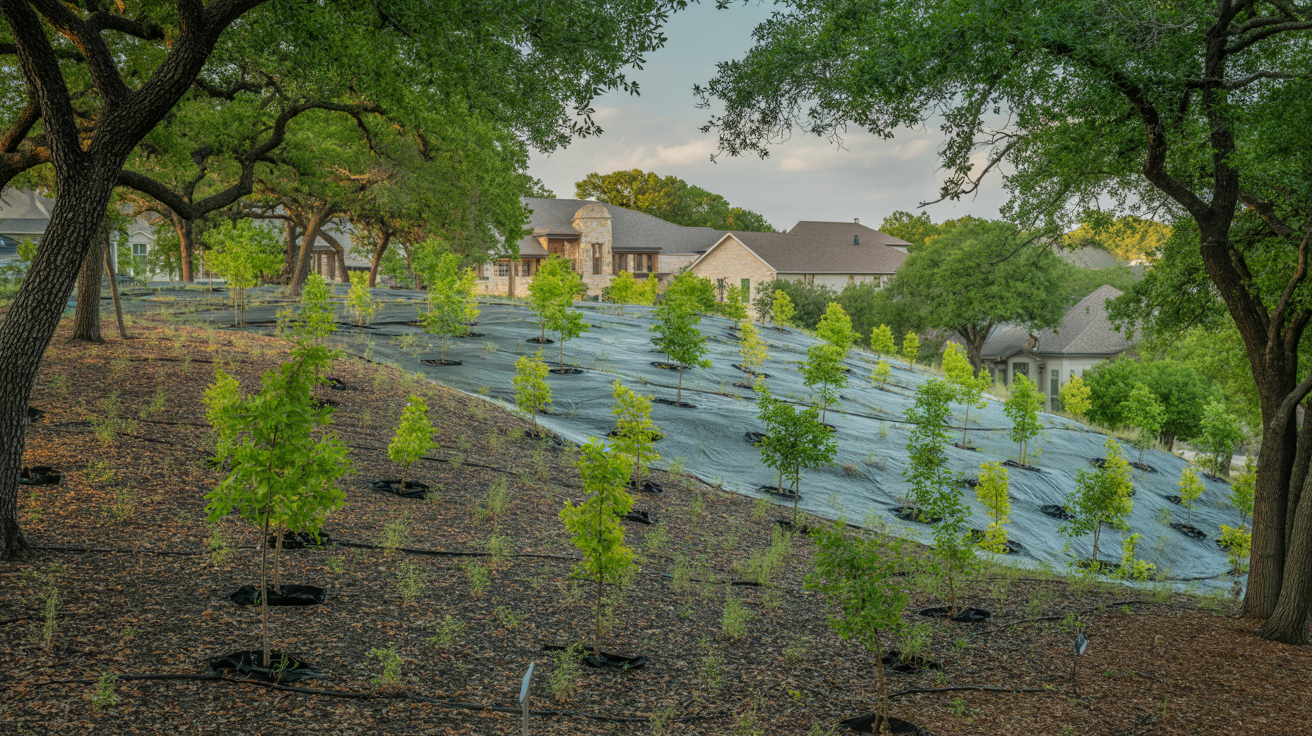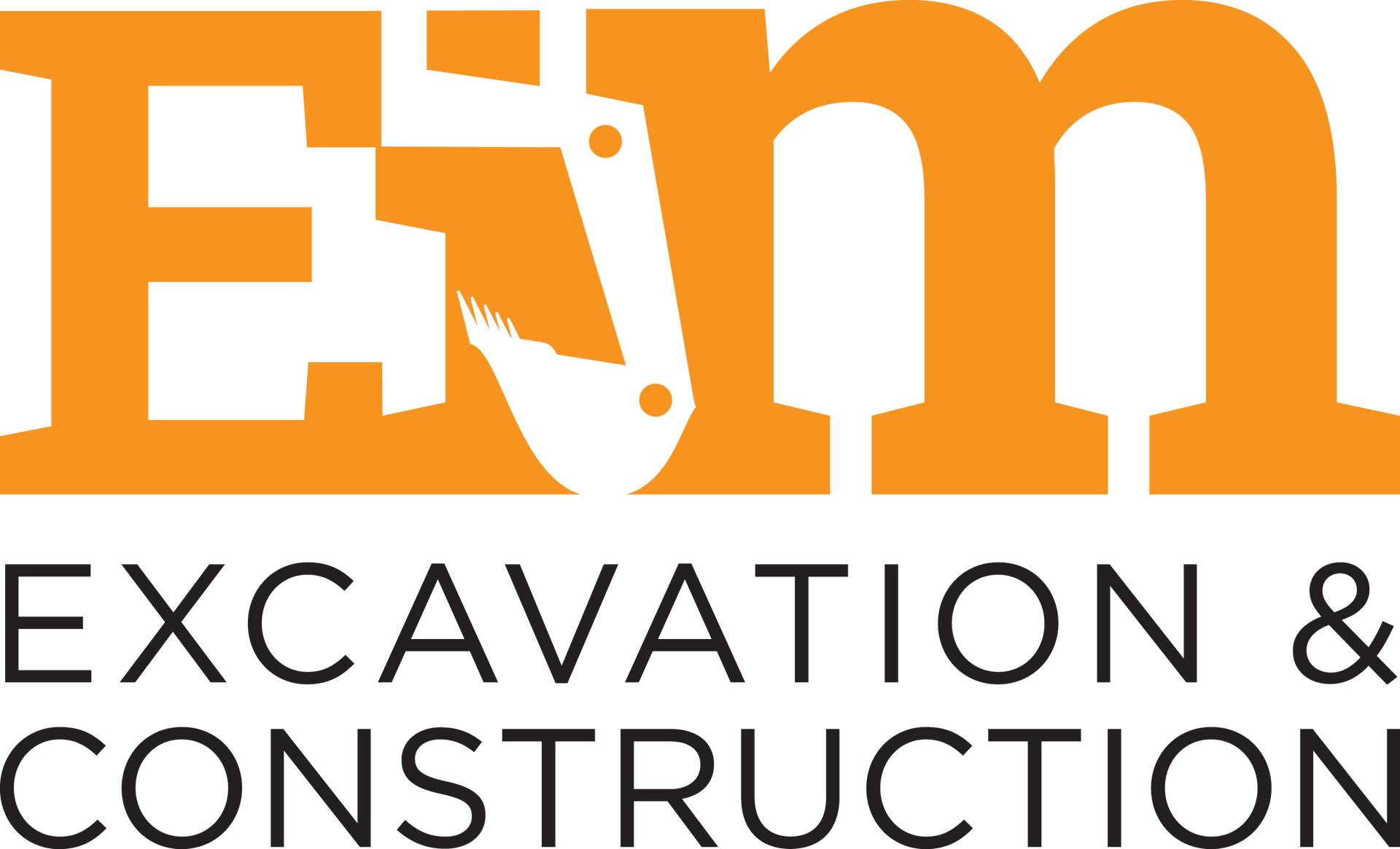What Makes a Building Contractor Worth Your Trust and Investment
How to Choose a Building Contractor: Essential Tips for Hiring the Right Professional
When you're planning a construction project, finding the right building contractor can make the difference between a dream come true and a costly nightmare. After two decades in construction and founding Earth in Motion in 2005, I've seen too many homeowners get burned by contractors who promise the world but deliver headaches instead. Let me share what I've learned about choosing and working with contractors who actually deliver on their commitments.
The construction industry is full of variables, but your success depends on partnering with someone who understands your vision and has the skills to make it reality. Whether you're building a custom pond in Austin or tackling a major renovation project, the fundamentals of working with quality contractors remain the same.
Understanding Building Contractor Licensing and Legal Requirements
Every state handles contractor licensing differently, and this creates confusion for homeowners. In Texas, where I operate Earth in Motion, the requirements focus heavily on proving your ability to complete work safely and professionally. Other states like California have incredibly detailed licensing systems with dozens of specialty categories, while places like Montana emphasize worker safety and insurance compliance above all else.
The key thing you need to understand is that proper licensing protects you, not just the contractor. When I work with clients on pond construction or other specialized projects, my certifications as a Service-Disabled Veteran-Owned Small Business give them confidence, but more importantly, my licensing ensures I'm following all the rules that keep their project legal and safe.
Here's what to look for when checking a contractor's credentials:
- Current license status- Don't just ask to see it, verify it online through your state's licensing board
- Proper insurance coverage- Both liability and workers' compensation if they have employees
- Bond requirements- Some areas require performance bonds that protect you if the contractor fails to complete work
- Specialty certifications- For unique projects like pond construction, additional certifications show expertise
I always tell potential clients that if a contractor hesitates to show you their licensing documentation, walk away immediately. Legitimate contractors are proud of their credentials and happy to prove their qualifications.
Red Flags That Signal Contractor Problems
Over the years, I've heard countless horror stories from clients who hired the wrong contractor before finding Earth in Motion. The warning signs are usually there from the beginning, but people ignore them because they want to believe they're getting a good deal.
Watch out for contractors who show up at your door unsolicited, especially after storms or disasters. Legitimate contractors don't need to go door-to-door looking for work. Also be wary of anyone who demands large upfront payments or wants you to pay for materials before they start work. Professional contractors have established relationships with suppliers and don't need you to front their material costs.
Another major red flag is when contractors can't provide local references or won't let you visit current job sites. When I'm working on a pond project in Austin, I'm always happy to have potential clients see my work in progress. Quality contractors want you to see their craftsmanship, not hide it.
Project Management and Communication Excellence
The difference between a smooth construction project and a stressful disaster often comes down to communication and project management. After managing hundreds of projects through Earth in Motion, I've learned that clients care more about knowing what's happening than having everything go perfectly according to the original plan.
Professional building contractors should provide you with clear timelines, regular updates, and transparent communication about any changes or challenges that arise. When I'm building a custom pond system, I walk clients through every phase of the process, from initial excavation through final landscaping, so they know exactly what to expect.
Essential Project Management Questions to Ask
Before hiring any contractor, you need to understand how they'll manage your project. Ask these critical questions:
- Who will supervise the work site daily, and how can you reach them?
- What's the communication schedule for progress updates?
- How do they handle unexpected site conditions or necessary changes?
- What's their policy for weather delays or material availability issues?
- How do they coordinate with subcontractors and suppliers?
The answers will tell you a lot about whether this contractor has systems in place to manage your project professionally. At Earth in Motion, I've developed detailed processes for every type of project we handle, from simple landscaping to complex pond installations, because I know that good systems lead to better outcomes for clients.
Handling Changes and Unexpected Issues
Every construction project encounters surprises. The soil conditions aren't what you expected, the existing utilities are in a different location, or you decide you want to upgrade materials halfway through. How your contractor handles these situations reveals their true professionalism.
Quality contractors document all changes in writing, explain how changes affect the timeline and budget, and get your approval before proceeding. When I'm working on pond projects, I often discover underground utilities or rock formations that require adjustments to the original plan. The key is immediately communicating these findings to the client and working together to find the best solution.
Never work with contractors who make changes without your approval or who present you with surprise costs at the end of the project. Professional contractors discuss potential complications upfront and have systems for handling them transparently.
Understanding Construction Pricing and Value
One of the biggest sources of frustration for homeowners is not understanding how construction pricing works. The lowest bid isn't always the best value, and the highest price doesn't guarantee the best quality. What matters is getting fair pricing for the specific value you receive.
Several factors drive construction costs, and understanding them helps you evaluate contractor proposals more effectively. Project size and complexity are obvious factors, but material choices, site conditions, and local labor rates also play major roles. When I'm pricing pond construction projects, I consider everything from soil excavation difficulty to the complexity of filtration systems to ongoing maintenance requirements.
Pricing Models That Protect Both Parties
Professional contractors typically use one of three pricing approaches, each with advantages and disadvantages. Fixed-price contracts give you cost certainty but may include higher margins to cover unforeseen complications. Cost-plus pricing provides transparency but requires more oversight to control expenses. Time and materials billing offers flexibility but can lead to budget overruns without proper controls.
The best approach depends on your project type and risk tolerance. For custom pond installations, I often use a hybrid approach that provides fixed pricing for known elements while allowing flexibility for site-specific variables that can't be determined until excavation begins.
Regardless of the pricing model, demand detailed written estimates that break down labor, materials, permits, and other costs. This transparency helps you compare proposals fairly and reduces the chance of surprise expenses later.
Avoiding Common Pricing Pitfalls
Many homeowners focus too heavily on the bottom-line price without considering what's included. A lower price might mean lower-quality materials, fewer included services, or shortcuts that create problems later. When evaluating contractor proposals, compare not just the total cost but the specific materials, labor standards, and warranties included.
Also be cautious about contractors who provide verbal estimates or rough numbers without visiting your site. Professional contractors need to see the actual conditions before providing accurate pricing. For pond projects, I always conduct detailed site surveys because factors like drainage, sun exposure, and access for equipment significantly affect both the construction process and final costs.
Building Long-Term Contractor Relationships
The best client-contractor relationships extend beyond single projects. When you find a building contractor who delivers quality work, communicates well, and stands behind their commitments, you want to maintain that relationship for future projects and referrals.
At Earth in Motion, many of my best clients started with small projects and have worked with me on multiple renovations, additions, and landscaping improvements over the years. These ongoing relationships benefit both parties because I understand their property, preferences, and standards, while they know they can count on consistent quality and service.
Building this kind of relationship starts with setting clear expectations from the beginning. Professional contractors should provide detailed contracts, maintain appropriate insurance, follow local building codes, and warranty their work. They should also be responsive to questions and concerns throughout the project and afterward if issues arise.
Warranty and Ongoing Support
Quality contractors stand behind their work with meaningful warranties and ongoing support. This doesn't mean they'll fix every minor issue that develops over time, but they should address any problems related to workmanship or installation errors. When I install pond systems, I provide detailed maintenance instructions and remain available to answer questions or address concerns.
The warranty should be clearly defined in writing, specifying what's covered, for how long, and under what conditions. Be wary of contractors who offer vague verbal warranties or who disappear once the project is complete. Professional contractors maintain relationships with their clients because satisfied customers are their best source of future business.
Making Your Final Contractor Selection
After you've verified credentials, evaluated communication styles, and compared pricing approaches, you still need to make the final decision about which contractor to hire. This decision should be based on the total package of qualifications, not just one factor like price or personality.
Consider the contractor's experience with projects similar to yours. Someone who's built hundreds of traditional homes might not be the best choice for a specialized project like pond construction. Look for contractors who demonstrate genuine expertise in your specific type of work and who seem excited about your project rather than just seeing it as another job.
Also evaluate their current workload and availability. Contractors who are too busy might not give your project the attention it deserves, while those who are always available might be struggling to find work for good reasons. The best contractors maintain steady workloads with reasonable scheduling that allows them to focus properly on each project.
Trust Your Instincts
Finally, don't ignore your gut feelings about working with a particular contractor. Construction projects involve having people on your property for extended periods, making decisions that affect your daily life, and spending significant money on improvements to your most valuable asset. You need to feel comfortable with the people you're hiring.
Professional contractors should make you feel confident about the process, not anxious about potential problems. They should answer your questions thoroughly, respect your time and property, and demonstrate genuine interest in achieving the results you want. When I work with clients on pond projects or other construction work, I want them to feel excited about the process, not worried about whether they made the right choice.
Remember that the cheapest option rarely provides the best value, and the most expensive doesn't guarantee the best results. Focus on finding contractors who combine fair pricing with proven expertise, clear communication, and genuine commitment to your satisfaction. Your construction project is too important to trust to anyone who doesn't meet these standards.
Taking the time to properly evaluate and select a qualified building contractor protects your investment and increases your chances of getting exactly the results you envisioned for your property.



